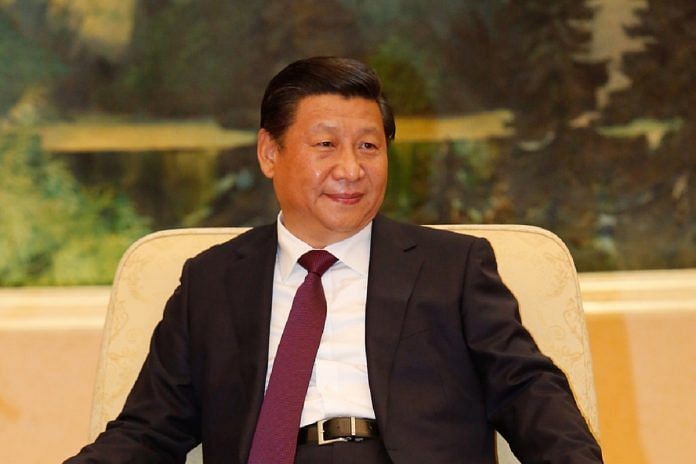Venezuela is struggling to provide its citizens basic necessities like power and water. At Boao Forum, Chinese President Xi Jinping paints China as the new flag bearer of free trade and liberalisation. Southeast Asia is now planning to tackle fake news using questionable methods.
Is Venezuela paying the price of socialism?
Venezuela is struggling for basic necessities such as water and power with some areas facing 13 day long power outages.
“We know why this is happening. All the utilities were taken over by the government during Hugo Chávez’s big nationalization drive between 2005 and 2009,” writes Carlos Hernández Blancoin in The Washington post.
“Socialists think charging for a service is wrong. So guess what? The public utilities are always broken. You can get away with no investment and no maintenance for a while — but after a decade, it catches up with you.”
“Take CANTV, our Internet provider. It used to belong to Verizon and worked reasonably okay, but in 2007, Chávez decided to expropriate it to strike a blow against international capitalism and to bring the Internet to the masses (or some such),” writes Blancoin.
Like other things, Venezuela’s internet too has become cheaper. But it is now the slowest in the world.
Power and water companies are state owned as well and run by ‘military men’.
“The always have excuses whenever there’s a nationwide blackout. They blame the droughts, the rains, even someone with a stick. Once, notoriously, they blamed an iguana for gnawing at some power cables. But most often they blame it on the United States, the old standby here in our country. The nonsensical excuses make for some fine memes, but the truth is simpler: no maintenance, plus no investment, plus corruption equals awful service,” writes Blancoin.
At Boao Forum, Xi takes veiled swipes at Trump
Chinese President Xi Jinping gave a speech at the Boao Forum for Asia Tuesday, where he spoke of a new phase of opening up the Chinese economy.
“He presented an alternative vision to President Trump’s calls for tariffs and restricting trade, urging ‘dialogue rather than confrontation,” writes Alexandra Stevenson in The New York Times.
“Speaking publicly for the first time since the beginning of an escalating trade dispute between his country and the United States, Mr Xi implicitly took aim at the Trump administration.”
Xi responded to US criticism of his policies by saying “cold war and zero-sum mentality” was now out of place.
“Mr Xi also pledged to rebuff efforts to impose barriers to world trade, saying that ‘China’s door of opening up will not be closed and will only open up even wider.'”
This speech is part of the Chinese government’s effort to portray the country as a free trade advocate. Infact markets across the world soared in response to the speech.
“The speech also garnered an enthusiastic response from Mr Trump, who pointed to the potential for negotiations. ‘We will make great progress together!’ he wrote in a Twitter post on Tuesday.”
“But Mr Xi’s pitch runs counter to longstanding accusations that China violates trade rules and intellectual property rights. The Chinese president is also pushing a nationalistic agenda, as he tightens his grip on the country’s political, social and economic life.”
Even though some are skeptical about the speech, since similar ideas were peddled at Davos last year, as changed policies in the US endanger the world order “China’s growing confidence and its verbal support of global trade rules offer other countries a potentially appealing alternative to Mr Trump’s rhetoric,” writes Stevenson.
Southeast Asian countries are now battling fake news-using undemocratic ways
Countries such as Singapore, Indonesia, Malaysia have begun a crackdown on fake news but often with serious consequences for the civil society.
“But just who gets to decide what constitutes an “illegal falsehood” is a worrying question. The social media, with its power and reach, has reshaped Southeast Asian politics — but it’s also handed a new tool to potential authoritarians as they look to define truth and falsehood online,” writes Kirsten Han in the Foriegn Policy.
“For governments used to wielding influence over the mainstream media, social media platforms like Facebook and Twitter can be a thorn in their side.”
“Yet as platforms like Facebook get slammed for allowing the spread of fake news, governments are getting more confident in going after online critics — whether they’re rumor-mongers or truth-tellers.”
“Facebook is far from blameless in this situation. In a recent piece, journalist and academic James Crabtree pointed to several credible allegations of negligence against Facebook, including accusations of fueling sectarian violence in Sri Lanka.”
Myanmar and Indonesia have had similar experiences with hate speech and disinformation.
“An anti-fake news bill was proposed in Malaysia on March 26, with harsh penalties of up to six years’ imprisonment and up to 500,000 ringgit (about $129,000) in fines. The bill, which would apply to people of any nationality even if the offense took place outside of Malaysia, defines fake news as ‘news, information, data and reports which is or are wholly or partly false’ — a definition slammed by human rights group Suara Rakyat Malaysia for being ‘unduly broad.’”
While tech companies have limited bargaining power with governments trying to control them, they can respond by better policies and community standards.
“Disinformation campaigns and data manipulation are genuine threats to democracies young and old, but the way in which certain governments have decided to approach the issue poses potentially dire consequences for civil society and civil liberties. If inadequately addressed, social media services like Facebook, which have until now given so many people a freer platform to access information and express themselves, might end up becoming the scapegoat for more authoritarian control.”



